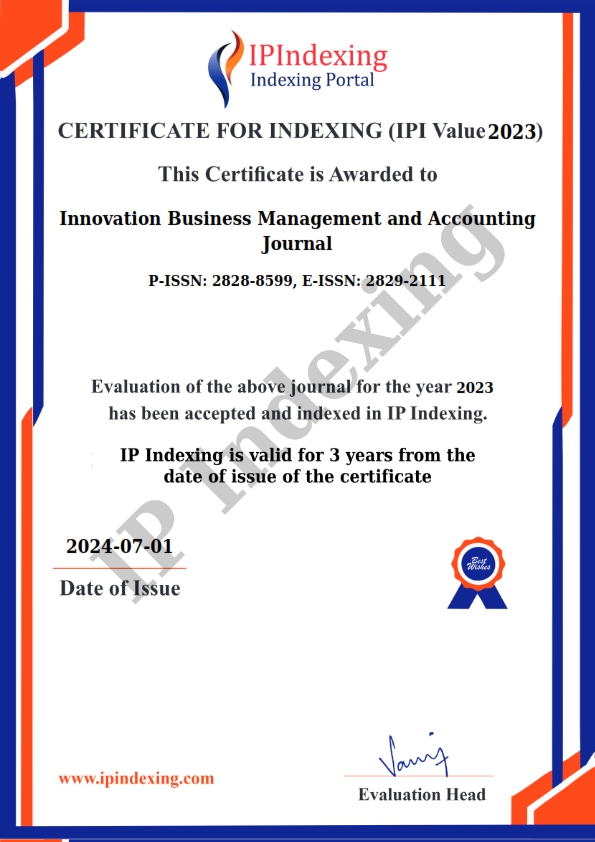The Effectiveness of the Tapera Program in Improving the Welfare of Government Employees: Media Ethnography Analysis
DOI:
https://doi.org/10.56070/ibmaj.2024.057Keywords:
Government Employees, Media Ethnography, Tapera Program, WelfareAbstract
The Public Housing Savings Program (Tapera) is an Indonesian government initiative to improve the welfare of the community, especially government employees, by providing access to affordable housing. Even though it has been running for several years, the effectiveness of this program is still being debated. This research aims to analyze the effectiveness of implementing the Tapera Program in improving the welfare of government employees. The research gap phenomenon that is the background for this research is the gap between program objectives and the reality of its implementation, such as low levels of participation and problems in financial management. The research method used is an ethnographic media study, by analyzing online news and discussions related to the Tapera Program. The research results show that although the Tapera Program has great potential in improving the welfare of government employees, its implementation still faces various challenges that need to be overcome to increase its effectiveness.
Downloads
References
Bastian, I. (2020). Akuntansi Sektor Publik: Suatu Pengantar (Edisi 4). Erlangga.
Buckley, R. M., Kallergis, A., & Wainer, L. (2016). The emergence of large-scale housing programs: Beyond a public finance perspective. Habitat International, 54(3), 199-209. https://doi.org/10.1016/j.habitatint.2015.11.022
Fauziyyah, N. (2022). Efek digitalisasi terhadap akuntansi manajemen. Jurnal akuntansi keuangan dan bisnis, 15(1), 381-390. https://doi.org/10.35143/jakb.v15i1.5276
Kementerian Dalam Negeri. (2019). Pedoman Pelaksanaan Desentralisasi dan Otonomi Daerah. https://www.kemendagri.go.id/publikasi/pedoman-pelaksanaan-desentralisasi-dan-otonomi-daerah
Kementerian Keuangan. (2020). Penerapan Prinsip-Prinsip Good Governance dalam Pengelolaan Keuangan Negara. https://www.kemenkeu.go.id/publikasi/berita/penerapan-prinsip-prinsip-good-governance-dalam-pengelolaan-keuangan-negara/
Kementerian Pekerjaan Umum dan Perumahan Rakyat. (2022). Laporan kinerja Kementerian Pekerjaan Umum dan Perumahan Rakyat tahun 2021. https://pu.go.id/publikasi/download/laporan-kinerja-kementerian-pupr-tahun-2021
Kementerian Pekerjaan Umum dan Perumahan Rakyat. (2023). Data statistik pelaksanaan Program Tapera tahun 2022. https://tapera.pu.go.id/data-statistik/2022
Kementerian Pendayagunaan Aparatur Negara dan Reformasi Birokrasi (Kemenpan-RB). (2020). Pedoman Tata Kelola Program Pemerintah. https://www.menpan.go.id/publikasi/pedoman-tata-kelola-program-pemerintah
Kozinets, R. V. (2015). Netnography: Redefined. SAGE Publications Ltd.
Leeuw, F. L. (2020). Can governments learn?: comparative perspectives on evaluation and organizational learning. Routledge.
Mardiasmo. (2018). Akuntansi Sektor Publik. Penerbit Andi.
Moser-Plautz, B., & Schmidthuber, L. (2023). Digital government transformation as an organizational response to the COVID-19 pandemic. Government Information Quarterly, 40(3), 101815. https://doi.org/10.1016/j.giq.2023.101815
Nasrullah, R. (2018). Etnografi virtual: Riset komunikasi, budaya, dan sosioteknologi di internet. Simbiosa Rekatama Media.
Nugroho, R. (2017). Kebijakan Publik di Negara-Negara Berkembang. Pustaka Pelajar.
Ortega-Rodríguez, C., Licerán-Gutiérrez, A., & Moreno-Albarracín, A. L. (2020). Transparency as a key element in accountability in non-profit organizations: A systematic literature review. Sustainability, 12(14), 5834. https://doi.org/10.3390/su12145834
Peraturan Pemerintah Nomor 25 Tahun 2022 tentang Tabungan Perumahan Rakyat. https://peraturan.go.id/pp/nomor-25-tahun-2022.html
Phang, S. Y. (2015). Singapore's housing policies: responding to the challenges of economic transitions. The Singapore Economic Review, 60(3), 1550036. https://doi.org/10.1142/S0217590815500368
Poi, G. (2020). Employee Welfare packages and the performance of public organizations in Rivers State, Nigeria. European Journal of Research and Reflection in Management Sciences, 8(2), 58-79.
Postill, J., & Pink, S. (2012). Social media ethnography: The digital researcher in a messy web. Media International Australia, 145(1), 123-134. https://doi.org/10.1177/1329878X1214500114
Purba, C. B., & Djamhur, A. (2020). Efektivitas program bantuan perumahan melalui Tapera bagi masyarakat berpenghasilan rendah di Kota Semarang. Jurnal Pembangunan Wilayah & Kota, 16(2), 119-132. https://doi.org/10.14710/pwk.v16i2.24839
Salmanzadeh, H., Kordestani, G., & Kazemi, H. (2022). The role of management accounting in improving management control system in public sector. Iranian Journal of Finance, 6(1), 54-82. https://doi.org/10.30699/ijf.2021.279013.1211
Setiawan, H. (2019). Akuntansi pemerintahan: Konsep dan praktik. Salemba Empat.
Shuid, S. (2016). The housing provision system in Malaysia. Habitat International, 54(3), 210-223. https://doi.org/10.1016/j.habitatint.2015.11.021
Sofyani, H., Pratolo, S., & Saleh, Z. (2022). Do accountability and transparency promote community trust? Evidence from village government in Indonesia. Journal of Accounting & Organizational Change, 18(3), 397-418. https://doi.org/10.1108/JAOC-06-2020-0070
Sopanah, A., Harnovinsah, & Sulistyan, R. B. (2023). Madura Indigenous Communities' Local Knowledge in the Participating Planning and Budgeting Process. Jurnal Ilmiah Akuntansi dan Bisnis, 18(1), 163-178. https://doi.org/10.24843/JIAB.2023.v18.i01.p11
Sulistyan, R. B., Carito, D. W., Cahyaningati, R., Taufik, M., Kasno, K., & Samsuranto, S. (2022). Identification of Human Resources in the Application of SME Technology. Wiga : Jurnal Penelitian Ilmu Ekonomi, 12(1), 70-76. https://doi.org/10.30741/wiga.v12i1.799
Suryanto, R., & Saputra, K. A. K. (2022). Peran pemerintah dalam peningkatan kesejahteraan masyarakat melalui program pembangunan. Jurnal Ilmu Administrasi Negara, 8(2), 123-136. https://doi.org/10.24198/jian.v8i2.12345
UNDP. (2021). Handbook on Programme and Project Monitoring and Evaluation. United Nations Development Programme.
UN-Habitat. (2020). Housing for All: Best Practices in Housing Policy and Implementation. United Nations Human Settlements Programme.
United Nations. (2015). Sustainable Development Goals. https://sdgs.un.org/goals
Waititu, F., Kihara, P., & Senaji, T. (2017). Effect of employee welfare programmes on employee performance: A case study of Kenya Railways Corporation. International academic journal of human resource and business administration, 2(3), 611-631.
World Bank. (2019). Indonesia Economic Quarterly: Oceans of Opportunity. World Bank.
World Bank. (2021). Housing Finance in Southeast Asia: Challenges and Opportunities. https://openknowledge.worldbank.org/handle/10986/35660
Downloads
Published
How to Cite
Issue
Section
License
Copyright (c) 2024 Sintia Nur Afifah, Muhammad Aras Prabowo, Asiroch Yulia Agustina, Muhammad Ashlyzan Razik

This work is licensed under a Creative Commons Attribution-ShareAlike 4.0 International License.



